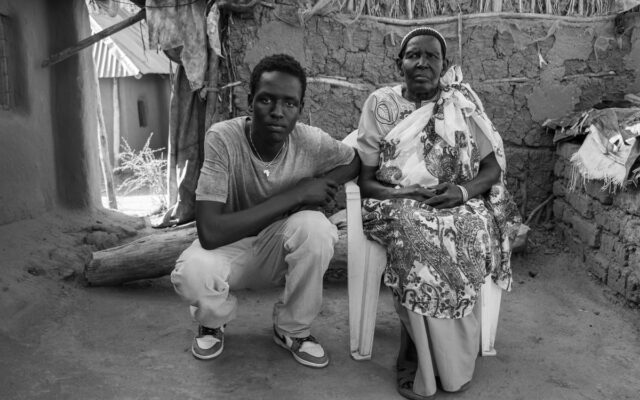A journey through technology, resilience and advocacy
Dame Stephanie (Steve) Shirley reflects on overcoming barriers, championing diversity, and the lessons learned from a life dedicated to innovation and advocacy.
31.10.2024
Photo credit: © UK for UNHCR/ Samin Saadat
We spoke with Dame Stephanie (Steve) Shirley, an information technology pioneer, businesswoman and philanthropist, about her journey from Germany, finding a home in the UK and participating as a Co-author in ‘CONGREGATION’, an art installation by Es Devlin.

Dame Stephanie (Steve) Shirley ©UK for UNHCR
What inspired you to pursue a career in technology at a time when it was predominantly male-dominated?
I was inspired to campaign for women in technology by my own experiences of discrimination (two pay scales, one for men, the other, a lower scale for women). We were legally disallowed from certain roles such as working on the Stock Exchange and driving a bus.
What lessons from your refugee experience do you think have been most influential in your career?
My refugee start has given me resilience. Nothing can compare to the loss of my home, my family and my nationality. Entrepreneurs are remembered for their successes, but our ability to cope with failure characterises us.
How has your background influenced your philanthropic focus, especially in supporting refugees and underprivileged communities?
I support the underdog. That mainly means people with autism but includes support for today’s refugees via the Safe Passage charity.
To mark my 90th birthday I commissioned a study of the impact of refugees on the health and care sector. The main findings were that migrants use fewer NHS services than non-migrants, and their tax contributions and immigrant health surcharges exceed their NHS use.
Secondly, migrants working in the health and social care sector have less sickness absence than non-migrants. This is partly because they tend to be younger, and partly because many go back to their country of origin when they are chronically sick. These findings, which are being used in Parliamentary Evidence Week (rapid-fire policy briefings are to encourage MPs, peers and parliamentary staff to engage with high quality research and thus foster a more effective legislation process).
In what ways can the tech industry improve its support for diversity and inclusion, particularly for refugees?
One way is to replace the interview process with a trial period of work.
What were some of the most important lessons you learned throughout your career that you believe others can benefit from?
An important lesson was the value of showing my vulnerability rather than always trying to demonstrate my superiority. Others are the value of kindness and the importance of sharing: sharing success, sharing rewards, and sharing ownership.
What advice would you give to refugees who are trying to build a successful career in a new country?
Learn the local language.
Finally, you must get asked to support so many projects, what was it about this artwork that made you want to take part?
This project focuses on an area of interest in an artistically innovative way. It’s different.
—
Discover more about CONGREGATION and the Co-authors by visiting this link.




